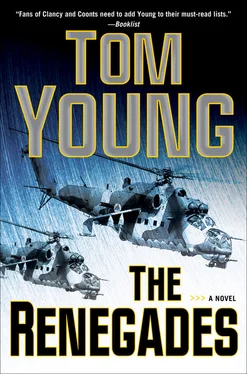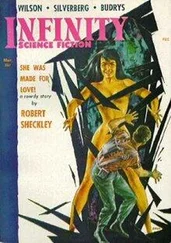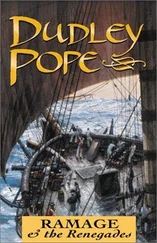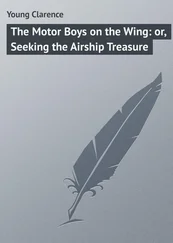“Welcome to Afghanistan,” Gold said. “By the way,” she asked the intel officer, “where is Lieutenant Colonel Parson? I thought he’d get back before we did. He’ll want to know all this.”
“There’s been a problem,” the officer said. He told her about what Aamir attempted, the downed Mi-17, the failed rescue attempt.
“Oh, my God,” Gold said. A spike of panic churned through her. Sweat began to pop on her forehead. The bad news came on like an illness, a first flush of fever. She crossed her arms and leaned her elbows on her knees. Here came another of those moments. At least Gold recognized the feeling when it happened. The phenomenon had carried different names in different eras, but its nature remained the same: soldier’s heart, shell shock, combat fatigue, post-traumatic stress disorder.
And she would control her stress. Or at least delay it. Put it in a box somewhere and wrestle with it later.
“It’s all right, Sergeant Major,” the officer said. “Parson has been talking to rescue forces. They’ll get him as soon as the wind dies down.”
“When will that be?” Gold asked.
“Sometime tonight. Tomorrow morning at the latest.”
“What can I do?”
“Nothing, really. They’ll be okay.”
Don’t patronize me, Gold thought. They’re outside the wire in a hostile area. That’s not okay.
But she kept all that in. She said only, “Is there anything else?”
“We do have another video from Black Crescent,” the officer said. “Are you up for watching it?”
Gold only nodded, so worried about Parson that she didn’t bother to say “Yes, sir.” She really didn’t want to see the video, especially if it depicted some horror, but she had a job to do.
The intel officer slid his laptop so Gold and Blount could see the screen. He clicked to open a file, then clicked on PLAY. A song in Arabic emitted from the computer’s tinny speaker, something about the warriors of jihad. A green flag fluttered on the screen, bearing the Black Crescent symbol.
The flag faded to reveal a horror, though not one of blood. The Black Crescent leader, Chaaku, sat brandishing a sword in his left hand, a Quran in his right. Ten boys stood around him, their ages maybe six to fourteen. Each child held an AK-47 or a bayonet, and the boys wore bandannas emblazoned with verses from the Quran. The verses meant the wearer was ready to die.
“Somebody needs to take away his camera,” Blount said.
“No,” the intel officer said. “The more he runs his mouth, the more we know about him.”
The terrorist leader began speaking. From the cadence of his English, Gold judged him a fluent speaker, and not reading from a script.
“As you can see,” he said, “the numbers of our young martyrs are growing. We teach them the principal duty of a Muslim is to pray and to fight. Mortal life has no other purpose than to vanquish the infidels and win the earth for the people of Allah.”
At the word Allah , the boys raised their weapons. Only the youngest of them smiled. Gold supposed he’d been orphaned a while back and thought this an elaborate game of make-believe by his latest caretakers. Most of the other children looked frightened.
The diatribe continued: “Some of these lion cubs will strike in the coming days. Others will grow to manhood and ever more fearsome capabilities. The spirit of Sheikh Osama bin Laden lives on in the youthful hearts that surround me. You will know their acts when you see them.”
The screen went blank; the music rose and faded. Gold wondered if Fatima’s brother had stood among the kids on the video. She also wondered if the ten boys were all Black Crescent had, or if there were more. Chaaku, or whatever he wanted to call himself, had not given numbers.
Intel analysts, she knew, would scrutinize every pixel of that video for clues. The wall behind Chaaku, made of baked mud—did its color suggest a possible location? The choice of music—had the same song appeared in other videos? The boys—could any be identified? She considered letting Fatima watch the video to point out her brother, if he was there, but Gold dismissed the idea. It would upset the girl and serve little purpose.
Gold cared more about the big picture—if she could just get herself to concentrate. She found it hard to stop worrying about Parson and imagining how those kids must feel. But she realized this new jihadist leader intended a masterstroke, some way to occupy the pedestal that once belonged to bin Laden.
Nearly all these terrorists said they acted purely out of religious piety, but Gold knew ego had a lot to do with it. This guy wanted to be the new Amir-ul-Momineen , the Commander of the Faithful. But other Islamists might not like him to claim that mantle, at least not this way. And maybe that was a wedge she could use.
* * *
With little to do but wait and watch, Parson surveyed the valley below him. Scattered birch and pine bowed to each gust. The strongest winds lifted dust from the swales and hills as if the ground smoked. If any insurgents stalked nearby, Parson could not see them.
He was getting hungry. This mission was supposed to be a short out-and-back, and he’d not brought any food of his own. But the crashed Mi-17 had carried relief supplies. Maybe there was something he and the others could eat.
“Keep a good lookout,” Parson told Conway. “I’ll see if there’s any food in the helicopter.”
“Yes, sir,” Conway said.
“You’re a civilian now. You don’t have to ‘sir’ me.”
“Yes, sir.”
Old habits, Parson thought. Once you’ve worn the uniform, you don’t ever completely take it off.
Inside the helicopter, Aamir remained sitting on a troop seat, staring at the floor. He looked as if he took no interest in anything happening around him. His hands remained tied behind his back, his feet taped together.
Conway’s partner lay with his back propped against the cockpit bulkhead. Every few seconds he would close his eyes tight and reopen them; Parson took that as a sign of pain. Reyes had given the man a plastic bottle of water. The injured civilian drank the last of it and dropped the empty to the floor.
Sharif was stretched out on Reyes’s litter, apparently unconscious. Reyes fussed over him, checked vital signs.
“How is he?” Parson asked.
“I think he’ll make it,” Reyes said, “as long as this doesn’t drag out too long.”
Parson wanted to assure him that wouldn’t happen, but he’d learned not to make those kinds of promises. He stepped around the two men lying on the floor and made his way back to the stacked relief supplies.
What he found disappointed him. When he looked closely, he saw the cargo had not been daily rations or Meals Ready to Eat, but bags of rice and even Unimix. Conditions in some of the villages must be getting bad if they were shipping that stuff.
Parson turned to go back outside, but then he realized he was hungry enough to try the Unimix. He picked up the empty water bottle Conway’s partner had dropped. Sitting on a troop seat, he raised the left leg of his flight suit and unclipped his boot knife. The Damascus steel blade amounted to a long razor, and it sliced into the bottle so effortlessly that Parson used no sawing motion at all.
He cut off the top of the bottle to create an open cup. Then he went to a bag of Unimix and lopped off the corner.
The dry, cereal-like substance poured from the opening, and Parson caught some of it in his makeshift cup. He found a full bottle of water, opened it, and poured some into the Unimix. Parson stirred it with his finger until it formed a lukewarm slurry.
Lacking utensils, he looked around for something to use as a spoon, but found nothing. With no other options, he tipped the cup toward his mouth and drank, chewed. The Unimix tasted like coarse, unsweetened oatmeal.
Читать дальше












